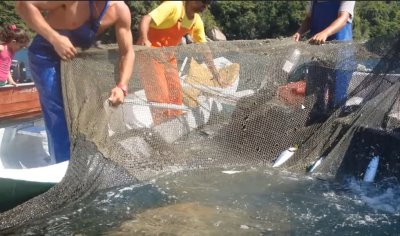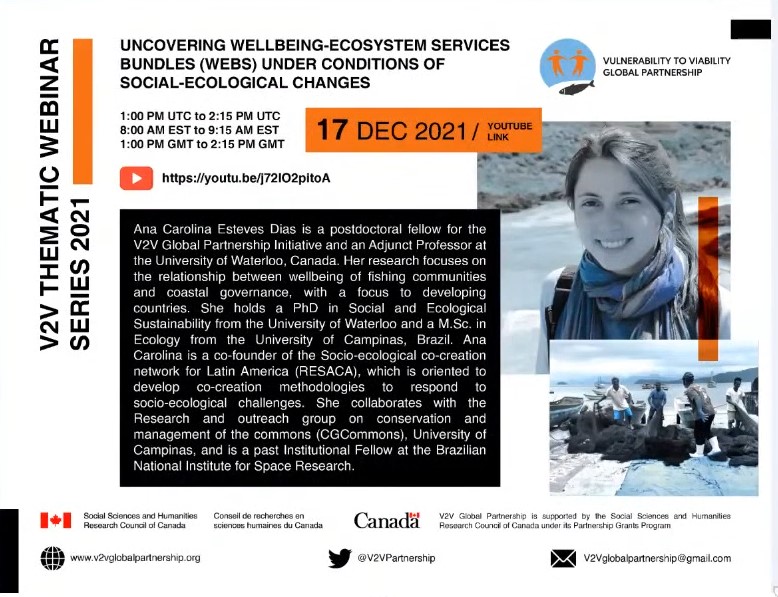 The last monthly lecture in 2021 organised by the V2V research initiative was delivered 17 December by Ana Carolina Esteves Dias, currently at Waterloo University, Canada. She talked about how the notion of wellbeing had evolved starting from the 1980s from a cultural notion to today's emphasis on people-nature relationship. In between the attention had shifted to the economic conditions sustaining a good life and later also included non-economic values. Wellbeing was one of the ways to understand what enticed people to get into and/or to stay in small-scale fishing and related activities and made the profession viable.
The last monthly lecture in 2021 organised by the V2V research initiative was delivered 17 December by Ana Carolina Esteves Dias, currently at Waterloo University, Canada. She talked about how the notion of wellbeing had evolved starting from the 1980s from a cultural notion to today's emphasis on people-nature relationship. In between the attention had shifted to the economic conditions sustaining a good life and later also included non-economic values. Wellbeing was one of the ways to understand what enticed people to get into and/or to stay in small-scale fishing and related activities and made the profession viable.
She then elaborated more in detail what wellbeing meant by reporting on a case study in Ubatuba city with its community of small-scale fishers in the Atlantic Forest between São Paulo and Rio de Janeiro, Brazil. Fishers were either of African descent or of mixed indigenous, African and European descent for whom their pirogues were more than just a means of transport and work. Canoe races were not only enjoyment, but also an occasion to carry out negotiations, affirm traditional regulations and practices, but also lobby for their political rights. Interviews, focus groups and collections of pictures provided by the fishers about what constituted wellbeing for them were the major sources of empirical information to answer the research question.
Click on the poster announcement below to follow the lecture and Q&A session afterwards.









